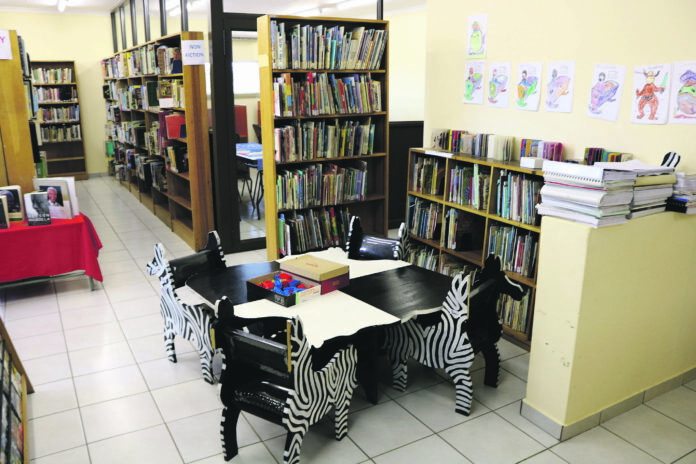Acclaimed author Stephen King once said that “books are a uniquely portable form of magic”, yet for millions of South Africans, that magic is inaccessible. A recent survey by the Paper Manufacturers Association of South Africa (PAMSA) found that 41% of the respondents own 10 books or fewer.
Some 80% admitted that they own 50 books or less, with only 8.6% reporting that they own more than 100.
“It is a disturbing statistic,” says Jane Molony, the executive director of PAMSA. “However, owning books should not be the sole measure of our literacy culture. We need to improve access to books in all forms: books in libraries and similar facilities, and books in a diversity of languages for South Africans. Picture books for little hands and developing brains also hold tremendous power, and ideally the books should be paper based.”
The same study also revealed when reading for leisure, 32% preferred paper books to electronic versions.
“Reading itself takes us to new places; books – especially in paper format – have the power to immerse us in the story,” adds Molony, also a former chair of the now defunct South African Book Development Council.
Molony says “countless research studies have shown that paper-based materials promote reading comprehension, information retention and learning and that print-based texts are superior to digital texts in facilitating learning strategies. Therefore, owning or sharing books, and fostering a culture of reading is crucial.”
Julia Norrish, the executive director of Book Dash adds: “Some statistics are encouraging: many people find print materials valuable in their daily life and in how they prefer to consume information. Unfortunately, this doesn’t always correlate to how many people own and access books.”
Book Dash gathers skilled volunteers to create and inject an abundance of relevant African picture books to children and their families.
“A society that reads tackles problems of unemployment, poverty, and inequality better than a society that does not read. Reading is even more important for our educators to ensure that they serve as role models who instil the culture of reading in their learners,” wrote Professor Tshilidzi Marwala, the outgoing vice-chancellor and principal of the University of Johannesburg, in an article covering 10 principles and how we can reform and fix our education system.
According to the 2016 Progress in International Reading Literacy Study, just under 80% of Grade 4 pupils are unable to read for meaning across all languages.
The rates of reading for leisure are down for both children and adults. Only 2% of children’s books published commercially in South Africa are in local African languages. In a country where eight out of 10 people speak a home language that is not English or Afrikaans, creating relatable stories in indigenous languages is critical if we hope to improve childhood literacy and inspire a love for reading in future generations.
– thepaperstory.co.za
Follow @SundayWorldZA on Twitter and @sundayworldza on Instagram, or like our Facebook Page, Sunday World, by clicking here for the latest breaking news in South Africa. To Subscribe to Sunday World, click here



